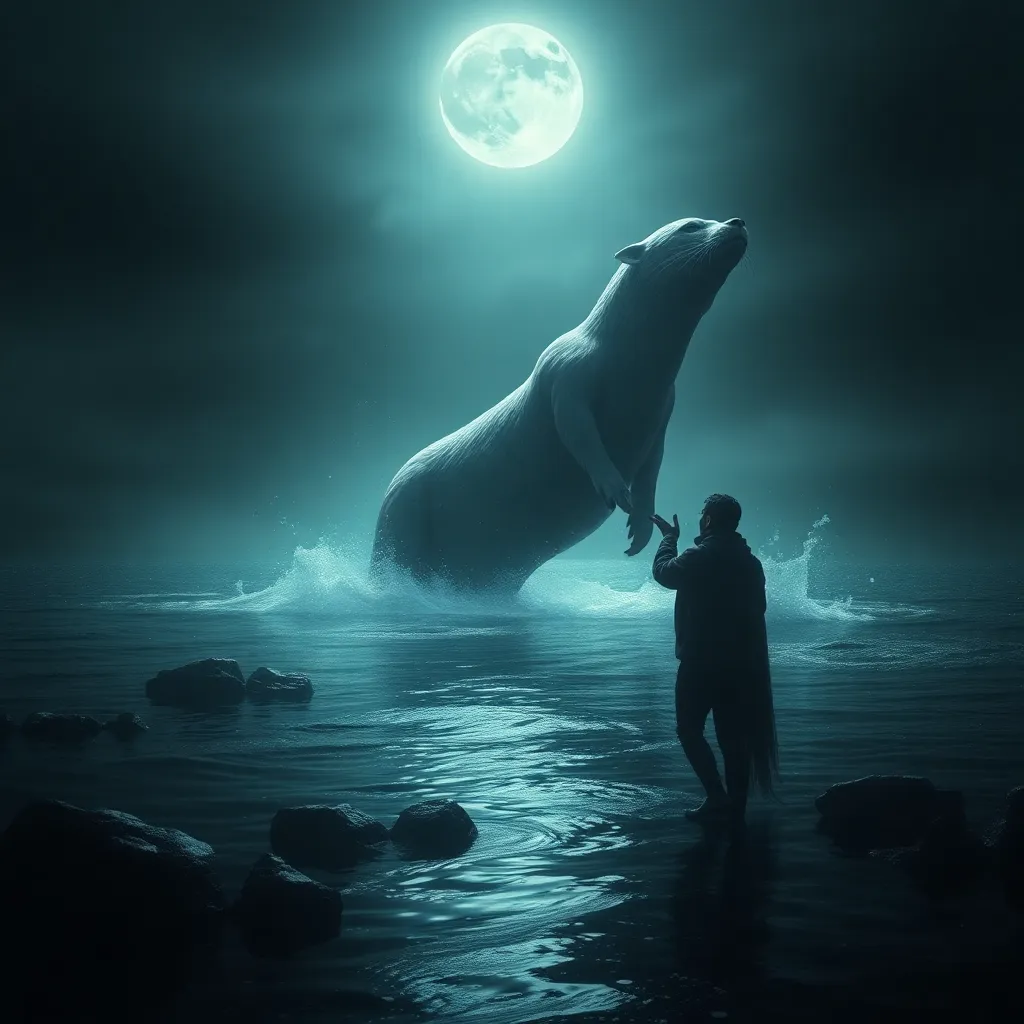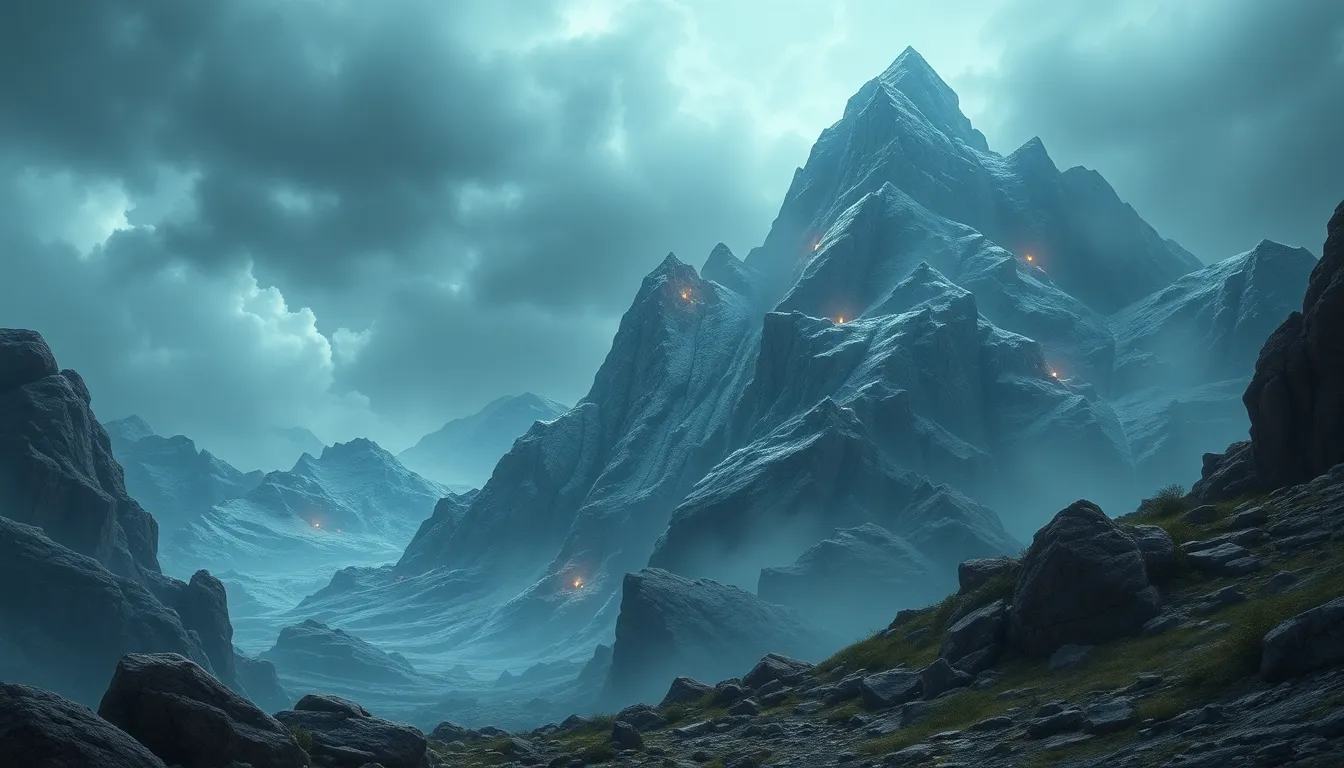The Mythical Battlefield: Legendary Conflicts That Defy Imagination!
Introduction to Mythical Battlefields
Mythical battlefields are the arenas where legendary conflicts unfold, encapsulating the essence of human experience through the lens of mythology and folklore. These tales of warfare, often steeped in symbolism and larger-than-life characters, not only provide entertainment but also convey profound moral and philosophical lessons. They serve as crucial components of cultural narratives, reflecting the values, fears, and aspirations of the societies that tell them.
The Origins of Mythical Warfare
From the earliest known civilizations, the portrayal of battles in myths has played an integral role in storytelling. Ancient cultures often depicted conflicts that mirrored their own struggles, using mythological frameworks to explain and justify warfare. The myths were influenced by actual historical events, transforming them into grand narratives that transcended time and space.
- Mesopotamian Epics: The Epic of Gilgamesh features battles that symbolize the struggles between civilization and chaos.
- Egyptian Mythology: The battles between gods, like Horus and Set, reflect the duality of order versus disorder.
Epic Conflicts in Greek Mythology
The Greek pantheon is filled with tales of epic conflicts, the most famous being the Trojan War. This legendary war was not just a clash of armies but a fated struggle involving heroes, gods, and mortals alike.
Key figures such as Achilles, Hector, and Odysseus emerged from this conflict, their stories intertwined with divine intervention that shaped the course of events. The gods actively participated in the war, taking sides, and manipulating outcomes, illustrating the belief that human fate is often inextricably linked to divine will.
The Role of Divine Intervention
Divine intervention in the Trojan War highlights several themes:
- Favor and Wrath: Gods like Athena and Apollo favored certain heroes, impacting their fates.
- Consequences of Human Actions: The war itself stemmed from human choices, like Paris’s fateful decision to abduct Helen.
Norse Mythology: Ragnarok and the End of Days
In Norse mythology, Ragnarok represents the ultimate battle between gods and giants, culminating in a cataclysmic series of events that leads to the end of the world as known to the Norse people. This apocalyptic conflict is rich in symbolism, representing the struggle between order and chaos.
Symbolism and Significance
Ragnarok is not merely a story of destruction; it embodies themes of fate, renewal, and the cyclical nature of existence. The events of Ragnarok remind us that even the mightiest will fall, and from destruction, new life can arise.
Asian Myths: The Battle of the Gods in Hindu Epics
The Mahabharata, one of the two major Sanskrit epics of ancient India, contains the Kurukshetra War, a monumental conflict that serves as a narrative exploration of morality, duty, and righteousness.
This war involved two factions of a royal family, the Pandavas and the Kauravas, and was not only a battle for territory but also a battle of ideals, with profound philosophical implications that continue to influence Hindu thought.
The Influence of Cosmic Battles
In Hindu philosophy, cosmic battles like the Kurukshetra War symbolize:
- Dharma: The moral law that governs individual conduct.
- Karma: The consequences of actions that shape the cycle of life and rebirth.
Celtic Legends: The Táin Bó Cúailnge
The Táin Bó Cúailnge, or The Cattle Raid of Cooley, is a central story in Irish mythology that features the hero Cú Chulainn. This tale of conflict centers around a dispute over a prized brown bull and showcases the fierce warrior culture of the Celts.
Supernatural elements and the concept of fate play crucial roles in this epic, highlighting the intertwined nature of destiny and human agency.
The Role of Fate and Supernatural Elements
In Celtic warfare, fate is an omnipresent force:
- Prophecies: Foretell the outcomes of battles and the fates of heroes.
- Supernatural Beings: Fairies and gods often intervene in human affairs, influencing the course of events.
The Role of Legendary Creatures in Battle
Throughout various cultures, mythical creatures have often been depicted as participants in legendary conflicts. These beings serve as symbols of chaos, power, or divine intervention.
Examples from Various Cultures
- Dragons: Prominent in many cultures, representing destruction and chaos.
- Griffins: Symbolizing strength and protection, often depicted as guardians in battle.
- Giant Serpents: Common in mythologies, representing primal chaos and challenges to gods and heroes.
Modern Interpretations of Mythical Battles
In contemporary literature and media, mythical battles continue to captivate audiences, often reinterpreted through new lenses. From J.R.R. Tolkien’s epic battles in Middle-earth to the cinematic portrayals of ancient myths in films like “Troy” and “300,” these stories have evolved but remain rooted in their origins.
Influence of Mythology in Popular Media
Mythical warfare has found its way into various forms of entertainment:
- Video Games: Titles like “God of War” and “Age of Mythology” draw heavily from these legendary conflicts.
- Movies: Films often adapt epic tales, highlighting the drama and spectacle of mythical battles.
- Art: Artists continue to explore these themes, creating works that reflect the grandeur of mythical warfare.
The Psychological Impact of Mythical Warfare
The stories of mythical battles resonate deeply within the human psyche, shaping beliefs and behaviors across generations. Themes of heroism, sacrifice, and the nature of evil are prevalent in these narratives, influencing how societies view conflict.
Exploration of Themes
Key themes in mythical warfare include:
- Heroism: The valor and courage of heroes inspire individuals to aspire to greatness.
- Sacrifice: Many stories highlight the sacrifices made in the name of a greater cause.
- The Nature of Evil: Myths often explore the struggle against malevolent forces, reflecting societal fears and moral dilemmas.
Conclusion: The Enduring Legacy of Mythical Battles
The legendary conflicts of our past continue to resonate today, providing a rich tapestry of narratives that explore the complexities of human nature. These stories remind us of our shared struggles and aspirations, serving as timeless reflections of the human experience.
Preserving and understanding these narratives is crucial in modern culture, as they not only provide insight into ancient beliefs but also inspire future generations to grapple with the eternal questions of morality, fate, and the nature of conflict.




